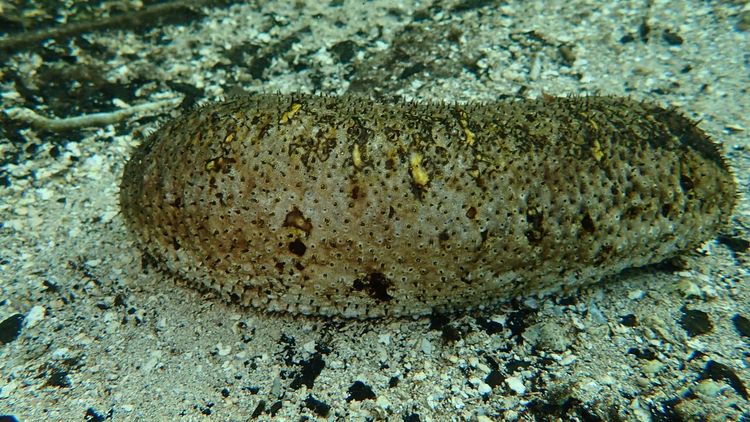Scientists of the ICBM investigate how sea cucumbers manage not to be covered over by fouling organisms
Scientists of the ICBM research group Environmental Biochemistry, headed by Prof. Dr. Peter Schupp, investigate marine animals which manage to prevent themselves from being covered over by fouling organisms by employing particular chemical compounds. Deeper knowledge on this issue could be a key to reduce costs in maritime shipping by lowering consumption of ship fuel and help to make marine monitoring more reliable, for example.
Marine fouling is a process which, e.g. causes annual losses amounting to triple-digit billions of USD to the global shipping industry. Delicate biofilms of organisms, such as algae, bacteria and fungi, start to cover the subsea parts of a ship. They create a perfect environment for organisms like barnacles, mussels and seaweeds, which subsequently colonise the underwater ship hull. As a consequence, the hull surface gets rougher and rougher, requiring the consumption of more and more fuel to keep the ship’s speed, generating rising amounts of climate-wrecking gases at the same time. Marine measuring devices are affected by fouling as well, it prevents them from measuring properly.
The team of scientists around Prof. Schupp investigated several marine animals which prevent themselves from being covered over by fouling-organisms by releasing particular chemical compounds. Among these organisms also were sea cucumbers, relatives of star-fishes and sea urchins. Although the cylinder-shaped organisms are rather sluggish they do not provide the attractive surface area for fouling organisms as one should assume at first sight. Depending on the genus, sea cucumbers release different compounds preventing them effectively from being covered over. Suchlike compounds could be used in environmentally friendly antifouling coats for boats, ships, marine sensors and more.
The recent results have been published in the scientific journal „Marine Drugs“. The work was supported by the German Federal Ministry of Education and Research (BMBF) within the scope of the support programme „Biodiversity & Health“.
Original publication: Kamyab, E.; Goebeler, N.; Kellermann, M.Y.; Rohde, S.; Reverter, M.; Striebel, M.; Schupp, P.J. Anti-Fouling Effects of Saponin-Containing Crude Extracts from Tropical Indo-Pacific Sea Cucumbers. Mar. Drugs 2020, 18, 181.
University Press release (German only)



![[Translate to English:]](/f/5/_processed_/3/2/csm_ICBM-Logo-transparent-_91fe1c6774.png)
